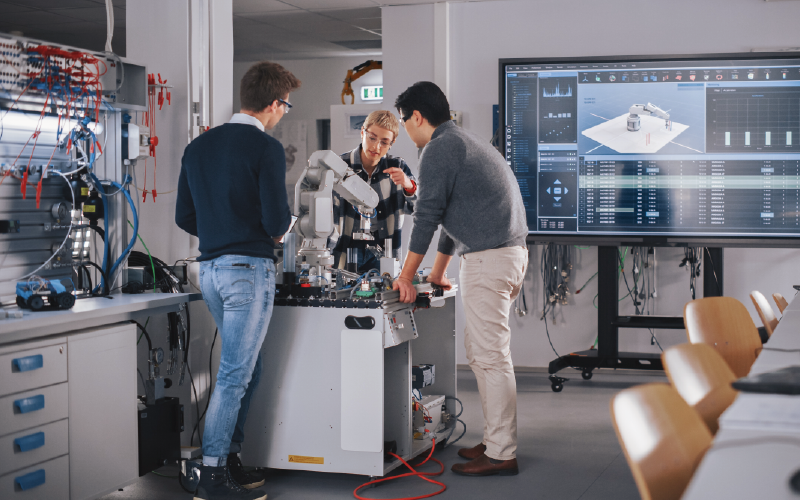
The world of work is changing at an unprecedented pace.
Disruptive technologies, new generations with different ambitions to integrate alongside more experienced ones, increasingly interconnected markets: these are the forces rewriting the rules of human resources on a global scale.
In this context, for FAIST the challenge is not only to recruit new talent, but also to attract and retain them, making retention an ever more central part of HR processes.
Whether in Umbria - where FAIST has deep roots - or in distant markets like China, Romania, Mexico or the United States, the challenges and opportunities share a common denominator: the value of people.
Umbria, historically defined by a strong manufacturing and industrial fabric, now faces a dual scenario: on one hand, the need to attract young talent to ensure continuity and innovation; on the other, the challenge of retaining the skills already present in the region. In the Italian market, offering stability and prospects with a solid contract is no longer enough: new generations seek continuous professional growth, training, flexibility and work-life balance, shared values, an inclusive corporate culture, sustainability and a focus on technological innovation. They want a company that is not just an employer, but a partner on their journey - and elsewhere in the world, it’s not so different.
In China, for instance, the pace of change is dizzying. Young talents are not just looking for jobs, but for platforms of self-realization.
Here, HR strength lies in combining advanced digital innovation with the centrality of people and cultural values.
In Mexico, the current and future challenge is the shortage of young workers with the right mindset to be trained in modern production skills (robotics, automation, digitalization, etc.).
This often forces FAIST to widen its geographic search pool in order to remain competitive. Adding complexity, HR must also translate not only the language but the work culture itself, so that global company policies can adapt to the Mexican context, becoming a bridge between two sometimes distant worlds.
In Central America, young people seek flexibility, continuous learning and fast career opportunities, while other colleagues value stability, security, and traditional benefits. The company’s task is to find the balance: design policies that meet expectations, build a sense of belonging, strengthen identity, and foster a positive work climate.
In Romania, competition among companies for a limited talent pool clearly shows that competitive salaries are not enough: effective onboarding, clear career paths, and a culture that fosters a strong sense of belonging are essential.
Different countries, different challenges, but one universal truth: without caring for people, there is no future for any company. For FAIST, this means standing firm in the conviction not only to recruit new resources, but to work every day to ensure that those already in the company choose to stay and grow.
The Region of Umbria remains for FAIST both a starting point and a foundation of identity, but our true strength lies in the ability to transform global experiences into a shared vision. The answer is not a one-size-fits-all model, but an HR strategy able to adapt, integrating culture, technology, and local needs.
The key words for the future are already written:
- Training and mentorship, to ensure up-to-date skills and continuous growth.
- Authentic employer branding, that values not only the company but also its territory.
- HR digitalization, with global tools capable of listening to and engaging people as a real community.
- An inclusive, people-first culture, centered on well-being, belonging, and opportunity.
The direction is clear: retention and development are becoming the main levers of competitiveness. It is no longer about “talent hunting,” but about creating the conditions for talent to stay, grow, and transform the company together.
The HR world knows no borders: whether in Umbria, Topoloveni, Oradea, Hermosillo, Suzhou, or Phoenix, the heart of the challenge is the same. In the next ten years, those who can retain, develop, and motivate their people will win. And on this certainty, FAIST will build its future - looking out to the world while staying true to the values rooted in its history.



